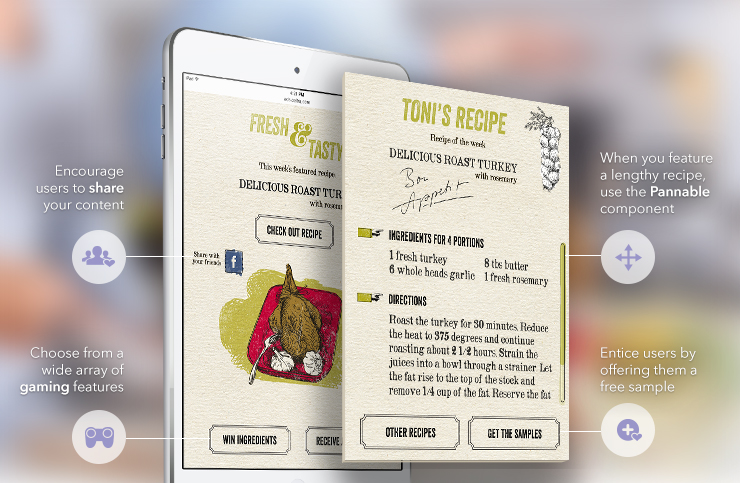Secure your place at the Digiday Publishing Summit in Vail, March 23-25

This is the first part of the “Mobile display ads know-hows” series sharing brief best practice insights from Celtra’s Q1 vertical-specific display advertising benchmark reports.
First on the list is the food & beverage industry vertical. Let’s see how you can spice up your upcoming campaign on summer drinks, snacks or meals.
- Catch the users’ attention, and keep them engaged with your brand for an extended period of time, by including one of the popular gaming features, such as Draggy & Basket, Puzzle or Painty.
- Include useful and visually attractive recipes or tips for food and drink preparation. When you feature a lengthy recipe, use the Pannable* component that can reveal additional content with user interaction.
- The best feature of your food or beverage is its taste. Why not invite consumers to try a sample of your product or to download a coupon in exchange for filling in their contact details through direct response features, like the Forms* components?
- Make it easy for users to share share your recipes, product shots or other content by adding social media share buttons.
*Draggy & Basket, Puzzle, Painty, Pannable and Forms components are integrated in Celtra’s AdCreator 4, the first cross-screen HTML5 technology for creating, managing, serving, and tracking immersive display advertising campaigns.
More from Digiday

Why Edward Jones’ agentic AI trial comes with limits
Edward Jones tests agentic AI to drive marketing productivity, taking a measured approach as it stops short of full automation.

Footwear brands navigate uncertainty after latest tariffs flip-flop
Some 99% of footwear sold in the U.S. today is imported, according to the Footwear Distributors and Retailers of America.

The case for and against publisher content marketplaces
The debate isn’t whether publishers want marketplaces. It’s whether the economics support them.







